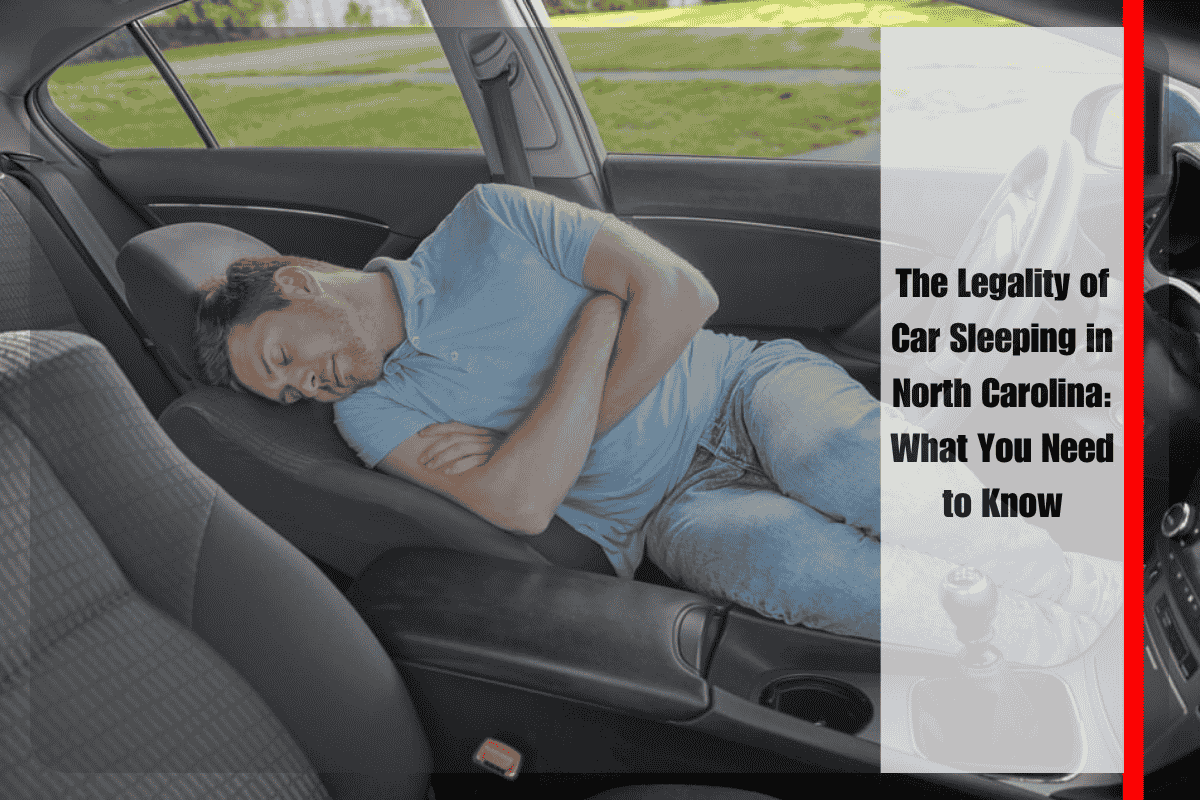The legality of sleeping in your car in North Carolina is not governed by a single statewide law but rather by a combination of state regulations and local ordinances, making it important for drivers to understand the specific rules of the area where they plan to rest. At the core, North Carolina law does not make it illegal to sleep in your car in and of itself; however, where and for how long you sleep can determine whether you are breaking the law.
Rest areas in North Carolina are a common place for drivers to pull over and rest, but these locations come with strict regulations. The North Carolina Department of Transportation (NCDOT) prohibits overnight parking and camping at rest areas. Additionally, while there is no explicit ban on sleeping in your car at these sites, the NCDOT has posted signs at Interstate rest areas prohibiting overnight parking and published brochures reinforcing this rule. However, rest areas are open 24/7, and drowsy drivers are encouraged to stop and rest until they are safe to continue driving. The NCDOT expects people to sleep in their vehicles rather than on picnic tables or grassy areas, but staying overnight is not permitted.
There is some confusion regarding time limits at rest areas. While some sources indicate a four-hour parking limit at rest areas, the official NCDOT rules do not specify a maximum time for how long you can stay at a rest area, only that overnight parking is prohibited. This means you can arrive at night and stay for as long as it takes to rest and resume driving safely, but you are not allowed to use the rest area as a place to sleep for the entire night or as a campsite.
Outside of rest areas, local ordinances in cities and towns throughout North Carolina may further restrict where you can park and sleep in your car. Many municipalities have rules against overnight parking on public streets or in public lots, and you may be asked to move along or face a fine if you are found sleeping in your car in these locations. Sleeping in your car on private property—such as a parking lot or driveway—is only legal if you have the property owner’s permission.
It is also important to note that if you are intoxicated and sleeping in your car, you could be at risk for a DWI charge if you are considered to be in “actual physical control” of the vehicle, such as having the keys in the ignition or being in the driver’s seat with the engine running.
While North Carolina does not have a blanket ban on sleeping in your car, you must be mindful of where you choose to park and sleep. Rest areas allow short-term rest but prohibit overnight stays and camping. Local ordinances may further restrict overnight parking and sleeping in public areas. Always seek permission to sleep on private property, and be cautious if you are under the influence of alcohol or drugs. Planning ahead and knowing the local rules will help you avoid fines, citations, or other legal troubles.
Sources
[1] https://teamjustice.com/is-it-illegal-to-sleep-in-your-car/
[2] https://97x.com/illegal-sleep-north-carolina-rest-area/
[3] https://www.freeway.com/knowledge-center/auto/have-you-ever-wondered-if-its-legal-to-sleep-in-your-car/
[4] https://www.boondockersbible.com/learn/north-carolina-rest-area-rules/
[5] https://www.directauto.com/learning-center/driving-laws-and-safety/where-why-its-illegal-to-sleep-in-your-car












